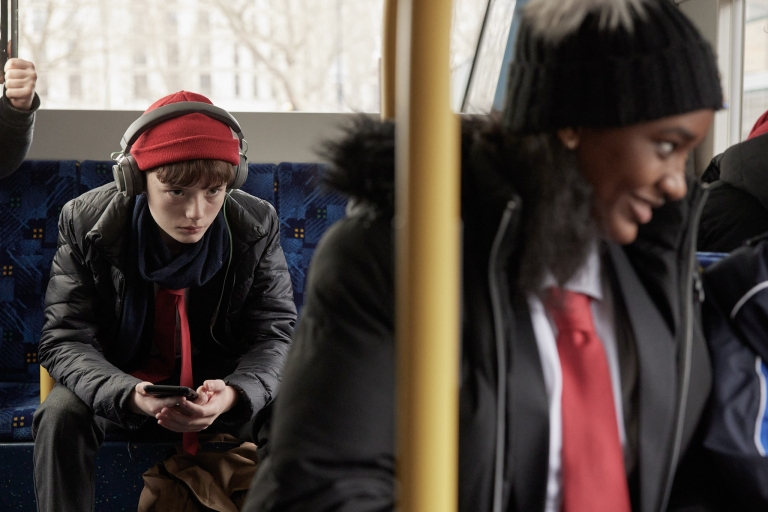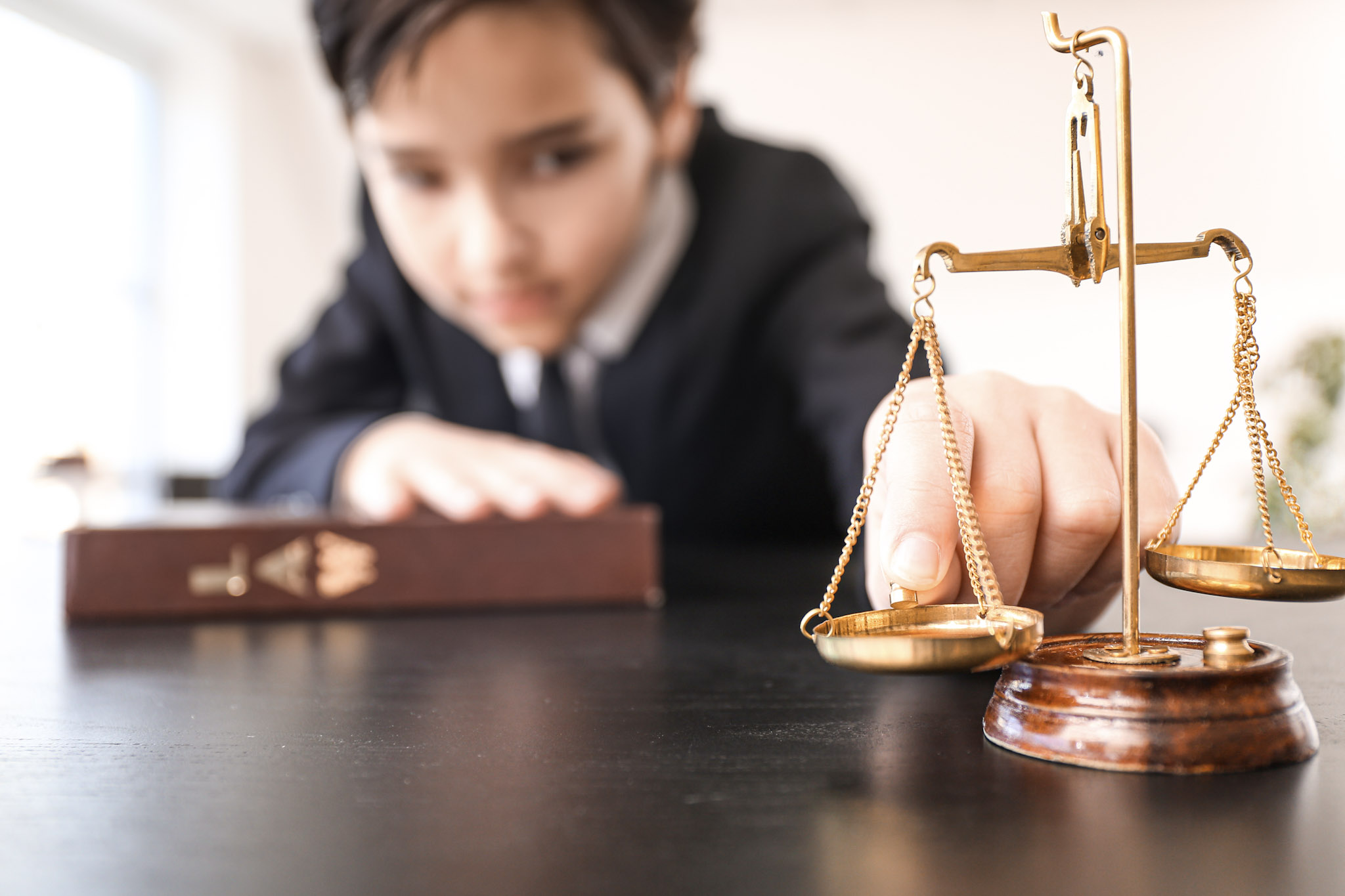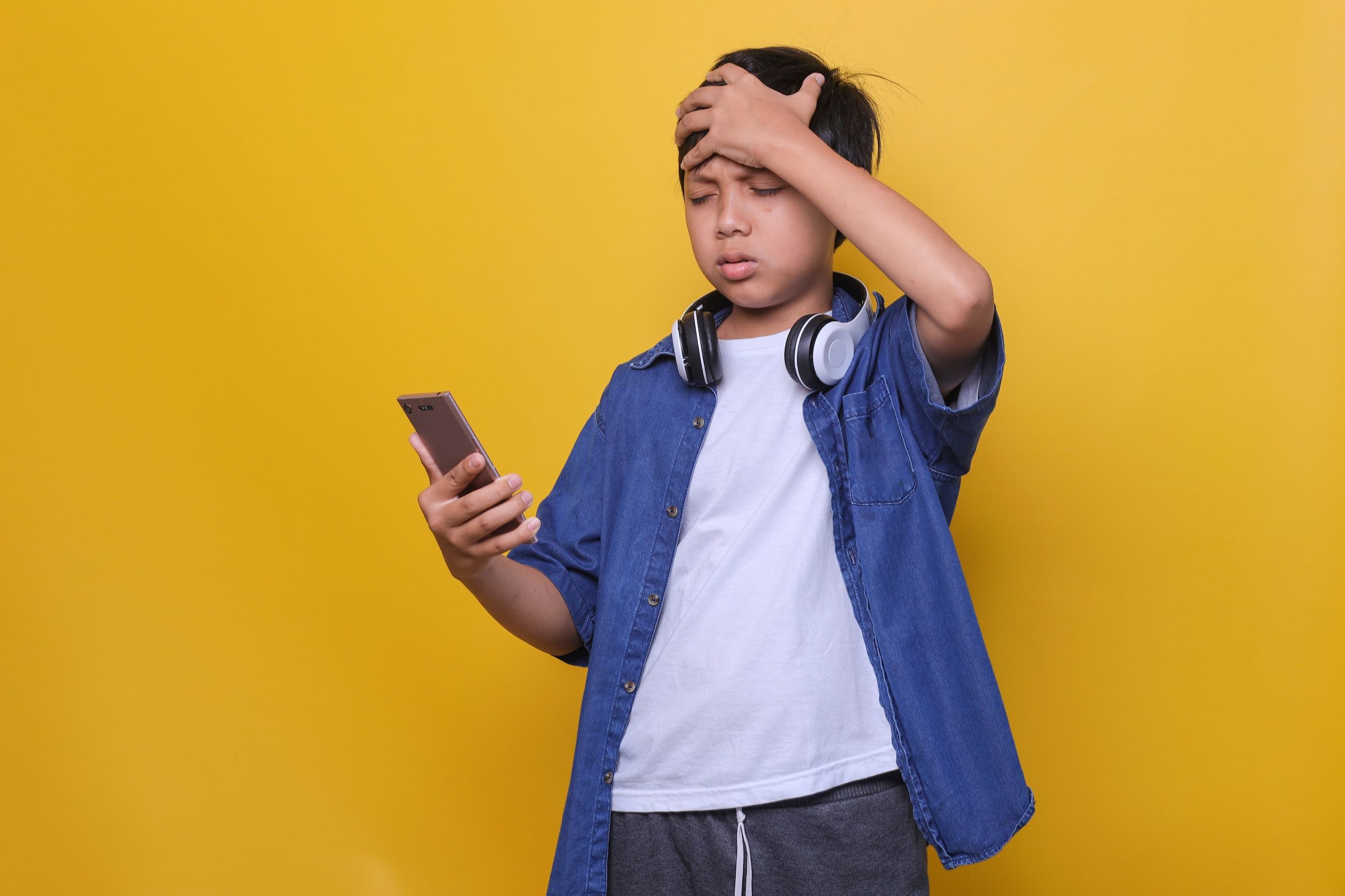On Safer Internet Day 2024, Vodafone released a new film ‘The Rise of the Aggro-rithm’ to highlight the harmful AI algorithms targeting Britain’s teen and tween boys.
- A new campaign from Vodafone reveals that six-in-10 (69%) boys aged 11-14 have been exposed to online content that promotes misogyny and other harmful views.
- Over half (52%) are aware of and have engaged with content from influencers with ties to the manosphere, a term used to describe the network of online communities responsible for creating and promoting negative, often misogynistic content.
- 59% of boys are led to this content through innocent and unrelated searches due to AI algorithms.
- 1-in-5 parents (22%) have noticed a gradual change over time in the language their sons use to talk about women and girls, while 70% of teachers have seen a rise in sexist language in the classroom during the last 12 months.
- Vodafone and NSPCC have created a new toolkit, in conjunction with children and parents, to support families in having online safety conversations around a variety of subjects including AI.
- Vodafone is calling on people to support Global Action Plan’s petition and help keep the internet safe. The petition focuses on ‘safety by design’ and asks regulators to ensure tech platforms prioritise user safety in the design of their products and services.
A new campaign from Vodafone has revealed that, on average, boys aged 11-14 are exposed to harmful content within 30 minutes of being online and one-in-10 are seeing it in as little as 60 seconds. This worrying trend stems from AI algorithms pushing content promoting misogyny (69%) or violence (79%) to boys following innocent and unrelated searches (59%).
Four-in-10 (42%) parents have heard their sons make inappropriate comments because of what they’ve seen online, discussing topics that are sexual (32%) or violent (44%) in nature, negatively talking about their own body image (27%) or degrading women and girls (22%).
The research, which analysed the experiences of 1,000 parents and boys (11-14) as well as over 4,000 teachers, was conducted to understand more about the effect of these algorithms. To bring the findings to life and raise awareness of the issue among parents and boys, Vodafone has, in partnership with the Global Action Plan, created a hard-hitting film, “The Rise of the Aggro-rithm.” The film sheds light on how some algorithms are harming the UK’s tween and teen boys by exposing them over time to an increasing stream of negative content, gradually desensitising them to the negative views they’re witnessing and impacting their thoughts and actions.
Teaching your kids to question what they see online, on TV and in the papers
On Safer Internet Day, we give parents tips on how to protect kids against dodgy TikTok videos, Facebook conspiracy theories, fake news and unreliable social media influencers.
The film, based on the real-life situations many boys are facing, tells the story of Olly. His views gradually become warped by ‘new friend’ Al (symbolising the AI algorithms), who holds narrow and often negative views of everything from women to how to be masculine. While Olly is initially uncomfortable with Al’s toxic viewpoints, he becomes accustomed to them over time and begins to adopt them himself. The story reaches its uncomfortable pinnacle when Olly shouts aggressively at his younger sister. As the story flashes back, the viewer realises that Al wasn’t another boy, but a personification of Olly’s online algorithm, and the content he was being served via innocent online searches.
The campaign calls for ‘safety by design’ to be prioritised by regulators as they implement the Online Safety Act, which many believe doesn’t yet go far enough. Safety by design requires tech platforms to ensure users are kept safe from harmful content by building safety into the design of their products and services.
Nicki Lyons, Chief Corporate Affairs and Sustainability Officer at Vodafone UK, said: “Every parent knows being online is part of everyday life for kids today – but it’s imperative we don’t miss the boat on AI when it comes to baking in safety at the start of the journey. This Safer Internet Day we have chosen to raise awareness of this issue and support Global Action Plan in their call for a safer internet. We’ve also created a new toolkit in partnership with NSPCC to help parents navigate the online world. We’ve been active in the digital parenting space for 14 years and we’re committed to doing more in the future.”

The campaign findings also revealed that this unsolicited material – pushed by AI-powered algorithms – is often seen by boys when innocently searching for fitness (28%) or gaming content (28%). Three-quarters of boys (76%) have therefore engaged with content from people or platforms they don’t actively follow online. Once they have done this, these ‘aggro-rithms’ are programmed to push more of the same, increasing boys’ exposure to harmful views, even if their initial exposure is accidental and limited.
This phenomenon of ‘gradual desensitisation’ is having a concerning impact in the real world, as the campaign research revealed that 70% of teachers have seen a rise in sexist language in the classroom over the last 12 months. Worryingly, 81% of teachers stated this behaviour was negatively impacting female students, and 79% stated that a lack of respect for women teachers is negatively impacting boys listening and learning in class.
Boys themselves are also feeling the effects of this content on their mental health, with two-thirds (66%) stating that seeing harmful content online made them feel a range of negative emotions including feeling worried, sad, or scared.
Sonja Graham, CEO at Global Action Plan, commented: “The only way to dial down misogyny and negative masculinity online is to rein in and reform the systems that recommend it. It’s imperative that products and services that use AI algorithms to recommend content, in particular those used by young children and teens, are safe by design. We know that parents are putting the responsibility squarely on themselves to protect their children online, but this rise in boys seeing harmful content isn’t the fault of the parents and it isn’t the fault of the boys. We need safety by design to be a priority within the fight for a safer online world and that’s why we are calling on everyone to sign our petition and show regulators the strength of public feeling.”
Dr Elly Hanson, Clinical Psychologist, commented: “At this pivotal point in their lives, tween and teen boys are being pushed misogynistic and toxic content by harmful recommender algorithms. This content is shaping many boys’ attitudes and identities in ways which hurt both them and those around them, including making it harder for them to form positive relationships. It’s urgent that regulators act to ensure online content platforms are safe by design, enabling children to enjoy the benefits of the internet without being exposed to such harmful material.”
Online Safety Act 2023: Everything you need to know
The new law has been hailed by organisations such as the NSPCC, yet it continues to be hotly debated. We explain what it is and what it means for families.
A positive unveiled by the study was that 62% of boys have spoken to their parents about negative content they’ve seen online. To support families in having more conversations about online safety, Vodafone has developed a toolkit featuring online safety guidance, tips and advice created in collaboration with children, parents, and the NSPCC.
Kate Edwards, Associate Head for Child Safety Online at the NSPCC, commented: “Being online is now entrenched in young peoples’ lives and while it comes with many positives, it also has risks that are often hidden. It’s important now more than ever that we ensure children’s safety is built into the design of technology and online platforms to protect them from harm.
“Young people are telling us that avoiding a virtual world is almost impossible, so we must begin to have open conversations with them and build trust between family members to engender these discussions. Part of being able to do this involves adults understanding more about the online world, and how to keep their children safe, which is why we’ve been working with Vodafone to create a toolkit that enables parents to know where to begin in keeping their children safe when entering into the virtual space.”
Vodafone’s new toolkit, created in conjunction with NSPCC, supports parents in having online safety conversations with their children.
With AI usage on the increase, and algorithms becoming ever more complex, 23% of parents believe the Government and online platforms should be doing more to protect their boys from harmful content online. Anyone who wants to have their say, and help create a safer internet, can sign Global Action Plan’s petition to keep safety by design a top priority in the Online Safety Act.
Stay up-to-date with the latest news from Vodafone by following us on Twitter and signing up for News Centre website notifications.
– Ends –
Methodology
Survey of 520 nationally representative UK-based parents of teenage boys aged 11-14 years old, and survey of 500 teenage boys aged 11-14 years old, carried out by Opinium Research between 22nd December 2023 – 9th January 2024.
Teacher Tapp is a daily survey app that asks questions of over 9,000 teachers each day and reweights the results to make them representative. Survey of 4,446 secondary school teachers, carried out by Teacher Tapp on the 23rd January 2023.
About the NSPCC
The NSPCC is the leading children’s charity fighting to end child abuse in the UK and Channel Islands. Using voluntary donations, which make up around 90 per cent of our funding, we help children who’ve been abused to rebuild their lives, we protect children at risk, and we find the best ways of preventing child abuse from ever happening. So when a child needs a helping hand, we’ll be there. When parents are finding it tough, we’ll help. When laws need to change, or governments need to do more, we won’t give up until things improve.
Our Childline service provides a safe, confidential place for children with no one else to turn to, whatever their worry, whenever they need help. Children can contact Childline 24 hours a day, 365 days a year.
Our free NSPCC helpline provides adults with a place they can get advice and support, share their concerns about a child or get general information about child protection. Adults can contact the helpline 365 days a year.





